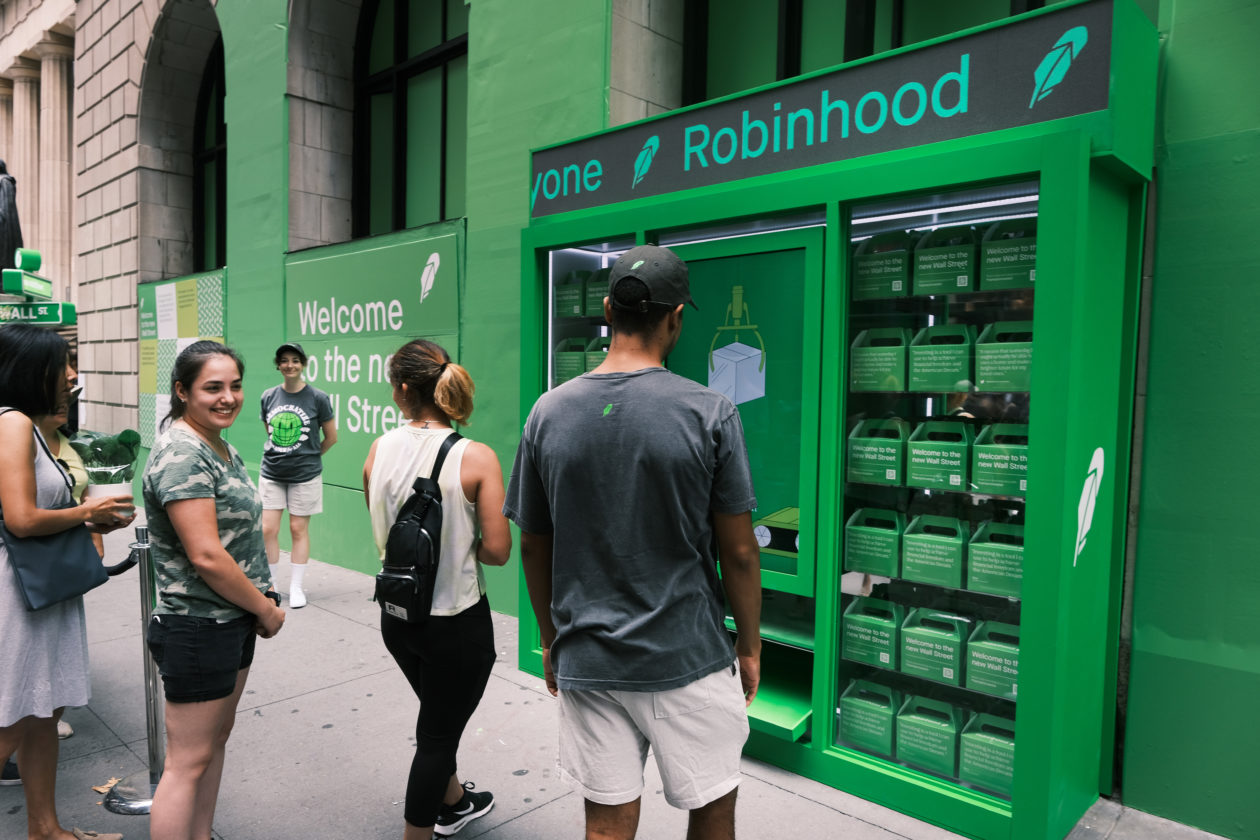Robinhood’s hotly-anticipated market debut had an underwhelming start on Thursday, closing 8% down on its debut price of US$38, according to data from TradingView.com.
Fast facts
- Trading under the ticker HOOD, Robinhood’s stock had an immediate rocky start, falling 10% before recovering slightly. But HOOD still ended the day at US$34.82. As Forkast reported recently, Robinhood’s initial IPO price of US$38 per share was already at the lower end of the expected price range, which was slated to be as high as US$42 for the 55 million shares available. About 52.4 million of those shares were sold, raising US$1.89 billion.
- Robinhood’s IPO valued the company at US$32 billion, under the previously expected evaluation of US$35 billion in the days leading up to the IPO.
- Robinhood made the unusual move of reserving 20-35% of the available shares for its users, perhaps to regain their favor after the platform’s mishandling of the GameStop saga. Ben Caselin, head of research at crypto exchange AAX, told Forkast.News recently that the company is likely to attract significant support from its customer base, but allocating such a high percentage of stocks to retail investors was also a risky venture that “introduces new vulnerabilities to the market, where a large community of users, who are also shareholders, will be able to express discontent over platform controversies in a much more impactful way — as opposed to boycotting or bad-mouthing on Reddit.”
- Despite predominantly being a stock trading app, cryptocurrency is comprising an increasing percentage of Robinhood’s bottom line, with 17% of revenue in Q1 this year coming from crypto, according to a company prospectus released on Tuesday. That’s up from only 4% in Q1 of last year.
- Robinhood is making efforts to grow those numbers further, recently introducing features to better protect crypto traders from price volatility. Aptly named “price volatility protection,” a message in the code of the new feature says to “protect your [customer’s] orders against price volatility, we may sometimes skip your recurring orders or buy less than your chosen amount.”





